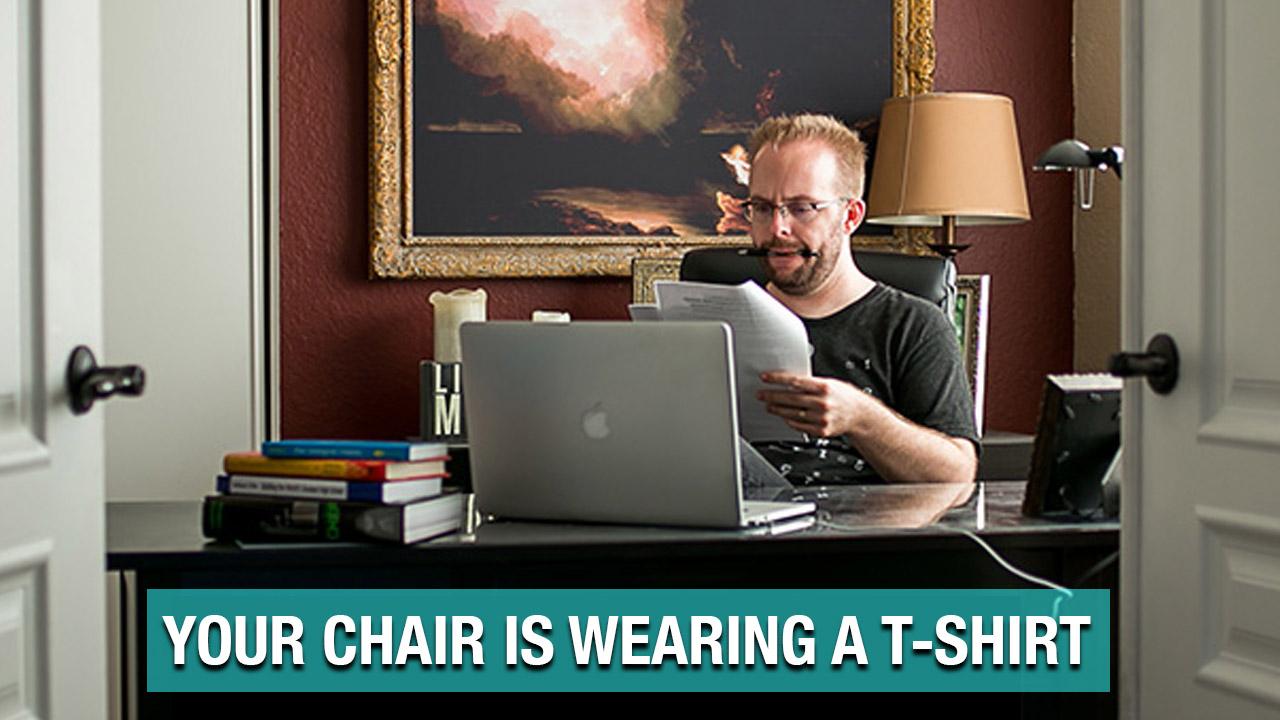[Article] Your Dissertation Chair is Wearing a T-Shirt


More and more, doctoral candidates are interacting with their dissertation chairs in every imaginable way EXCEPT face-to-face meets. Consider: How many times have you sat across a table from your chair in the past year?
How does this shape the way that we interact with our chairs?
This Was Not Always So
Candidates in decades (and centuries) past interacted with their chairs quite differently. They interacted with them with a sense of reverence and respect that fit the times. They saw them in classes, in office hours, and in the myriad of events that made up the doctoral experience.
Imagine what that looked like. Interactions were formal. Dress was anything but casual. These chairs were human beings of great importance, sitting on the pedestal of the University’s reputation. Interactions were close — where a lack of eye contact or a disappointing gesture was, often, an emotional experience.
When we have to look a human being we respect in the eyes, our way of bringing “our best” to that person is different than a faceless email.
Your Chair is Not Your University
Your dissertation chair is, probably, sitting at home in a t-shirt right now watching television. They have a family and a full schedule. They could be working multiple jobs to stay afloat. They will speak to dozens of people today and receive emails from dozens more. They are a human being: Not a University. They are a human being that has accomplished HUGE things in life. Do you approach them with the level of reverence a human being of such stature deserves? Do your communications show that respect? They are not your University that you pay. They are the chair that has placed a bet on you saying, “I believe this candidate can finish and I’m willing to work with them until they do!”
Your Chair is Not Your Editor
Your dissertation chair, most likely, only wants to see your best work. Sure, from time to time, they are willing to see the occasional rough draft to help shape your direction. However, I can guarantee that, in the end, every chair is expecting you to bring your absolute best work to your proposal draft and final draft. They don’t just want your best: They want to see that you have accessed all the best materials and help you could access to finish well. They expect that you have put your blood, sweat, tears, and time into this final product. They are a human being that will read your 150+ page document upon request — but you can’t expect them to edit it for grammar, spelling, APA style, and form. Though: They will provide you the guidance toward next steps.
Your Chair is Not the Reason For Your Failure
This is probably going to be the least popular paragraph i’ve ever written, but you need to read this. Your chair is not the determining variable in you finishing this process or not. It’s entirely on you. No one gets to blame his or her personal trainer for not developing “the bod” of their dreams when they didn’t work their butts off every day at the gym and found a way to eat unhealthy five out of seven nights of the week. With some very small exceptions, you don’t get to blame your chair for your lack of progress. You can’t blame the coach for the players lack of ability: At least, not in the dissertation game! No one does. Rather than saying, “My chair is horrible,” ask yourself, “How am I horrible?” What are you willing to do to finish this thing? What if everything was in your hands and it’s completely on you to finish or not? What then?
How to Win
So, if you want to maximize your chances of doing well and finishing:
- Take on 100% ownership of this project;
- Send only your best (a) draft, or (b) questions to your chair;
- Be the best human being you can be, to enable your chair to be more able to give the best of their gifts to you.
Your chair is a t-shirt wearing human being. Treat them as such.
Get all Dr. Guy's free stuff in one email! A dissertation treasure!
It's my purpose on this planet to help doctoral dissertation writers finish so they can graduate. I'll send you all my free stuff in one email. Then, I'll send you more amazing stuff as I create it! By signing up for our freebies, you agree to abide by our terms and privacy policy.


